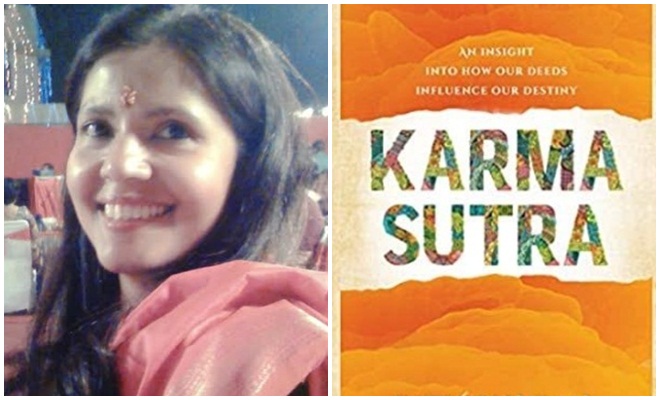TLI Staff
New Delhi: Ritu Sharma, author of The Householder: A Peek Into the Changing Role of Women in India, speaks to Top Lead India about her new book Karma Sutra: An Insight Into How Our Deeds Influence Our Destiny.
Karma Sutra is an endeavour to elaborate the theory of karma and shed light on the many ways in which it influences our life. It also attempts to explain the universally paradoxical theme of why good people suffer and the evil flourish.
Excerpts from the conversation:
Q: Tell us something about your new book Karma Sutra.
A: My new book explores the theory of Karma, which is also the central concept of Indian philosophy. It helps us to understand – what is perhaps an age-old paradox – of ‘why good people suffer and the wicked ones flourish’. It also addresses the debate of free will versus pre-determination, and tells us how within our given limitations we have the power to create our destiny.
Q: What inspired you to write the book?
A: What inspired me to write this particular book was my need to comprehend the rationale behind the evident disparity in people’s lives. This disparity is not just limited to socio-economic factors but also extends to our physical and psychological make-up.
Q: As a writer what do you aim to achieve when you start writing?
A: Well, as a writer I expect my readers to gain an insight into how our actions determine our fate and destiny. In fact we alone are responsible for the kind of lives we lead – good or bad. Unless we work on cultivating our ethical self we will continue to be at the mercy of our fate. The only solution to our lament “Why me” lies in understanding the working of Karma – which is clearly the basis of ‘poetic justice’.
Q: Who is your target audience?
A: Since the subject of my book is topical, I think it would appeal to people of all age groups and all walks of life. While the first part of the book elucidates the theory of Karma, the second part of the book draws upon the epic Mahabharata to help us understand how our Karmas weave the tapestry of our life. The book also reinforces the common truth that adherence to duty eventually leads to victory.
Q: What is the hardest part about writing the book?
A: Well, solitude has to be the hardest part about the process of writing. Yet it is a necessary evil. Sometimes you really miss the regular interaction that is part and parcel of most other professions.

